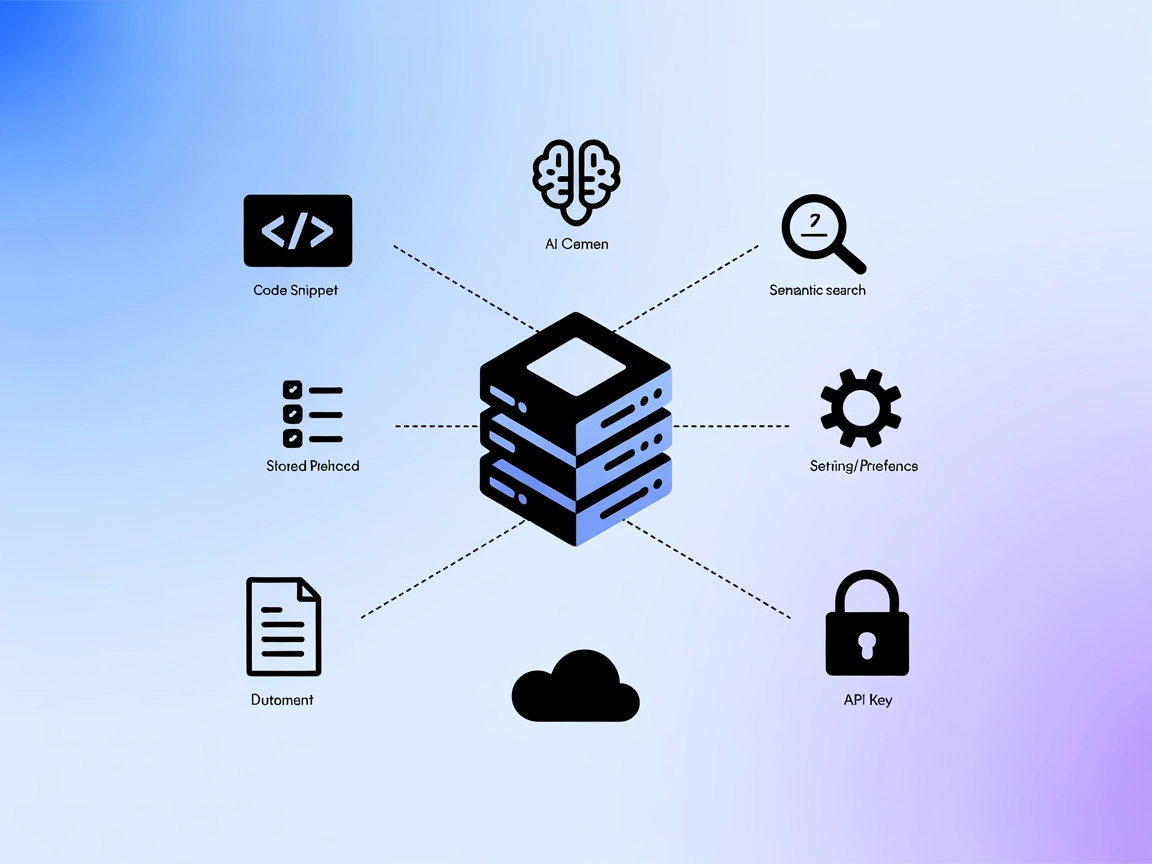
Model Context Protocol (MCP) Server
The Model Context Protocol (MCP) Server bridges AI assistants with external data sources, APIs, and services, enabling streamlined integration of complex workfl...

Securely connect FlowHunt AI workflows with Auth0 for seamless authentication, identity management, and real-time user data access.
FlowHunt provides an additional security layer between your internal systems and AI tools, giving you granular control over which tools are accessible from your MCP servers. MCP servers hosted in our infrastructure can be seamlessly integrated with FlowHunt's chatbot as well as popular AI platforms like ChatGPT, Claude, and various AI editors.
The Auth0 MCP (Model Context Protocol) Server is designed to connect AI assistants with external identity and authentication data provided by Auth0. By integrating with the Auth0 MCP Server, AI-driven development workflows can securely access user authentication data, authorization information, and identity management operations. This setup enables tasks such as querying user profiles, managing access permissions, or interfacing with Auth0 APIs programmatically. As a result, developers can build AI-powered tools that leverage real-time identity data, automate security processes, and streamline identity management workflows in modern applications.
No prompt templates were found in the available repository files or documentation.
No explicit MCP resources were documented in the available repository files or documentation.
No specific tools were listed or described in the repository files or documentation (e.g., no server.py, tool registry, or similar visible).
No detailed use cases are provided in the available repository files or documentation.
{
"auth0-mcp": {
"command": "npx",
"args": ["@auth0/auth0-mcp-server@latest"]
}
}
{
"auth0-mcp": {
"command": "npx",
"args": ["@auth0/auth0-mcp-server@latest"]
}
}
{
"auth0-mcp": {
"command": "npx",
"args": ["@auth0/auth0-mcp-server@latest"]
}
}
{
"auth0-mcp": {
"command": "npx",
"args": ["@auth0/auth0-mcp-server@latest"]
}
}
To secure API keys, use environment variables. Example configuration:
{
"auth0-mcp": {
"command": "npx",
"args": ["@auth0/auth0-mcp-server@latest"],
"env": {
"AUTH0_API_KEY": "${AUTH0_API_KEY}"
},
"inputs": {
"apiKey": "${AUTH0_API_KEY}"
}
}
}
Using MCP in FlowHunt
To integrate MCP servers into your FlowHunt workflow, start by adding the MCP component to your flow and connecting it to your AI agent:

Click on the MCP component to open the configuration panel. In the system MCP configuration section, insert your MCP server details using this JSON format:
{
"auth0-mcp": {
"transport": "streamable_http",
"url": "https://yourmcpserver.example/pathtothemcp/url"
}
}
Once configured, the AI agent is now able to use this MCP as a tool with access to all its functions and capabilities. Remember to change “auth0-mcp” to whatever the actual name of your MCP server is and replace the URL with your own MCP server URL.
| Section | Availability | Details/Notes |
|---|---|---|
| Overview | ✅ | |
| List of Prompts | ⛔ | |
| List of Resources | ⛔ | |
| List of Tools | ⛔ | |
| Securing API Keys | ✅ | |
| Sampling Support (less important in evaluation) | ⛔ |
A lot of the expected MCP-specific information (prompts, tools, resources, and sampling/roots support) is missing or undocumented in the public repository. The repo does have a LICENSE and setup info, but lacks detailed technical content.
Based on the available documentation and repository content, this MCP server receives a 3/10. It provides only high-level setup and licensing information, but does not document core MCP capabilities like prompts, resources, tools, or advanced features.
| Has a LICENSE | ✅ |
|---|---|
| Has at least one tool | ⛔ |
| Number of Forks | 13 |
| Number of Stars | 50 |
The Auth0 MCP Server connects AI assistants and workflows to Auth0's identity, authentication, and authorization APIs, enabling secure and programmatic access to user data and permissions.
Add the Auth0 MCP Server to your mcpServers section in your platform's configuration file, using the provided JSON snippet. Save and restart your platform to establish the connection.
Store your Auth0 API keys as environment variables and reference them in your MCP server configuration. This prevents accidental exposure of sensitive credentials.
Common uses include accessing user profiles, managing authentication and authorization flows, and automating identity management in AI-powered applications.
No prompt templates or specific tools are documented in the available repository files or documentation for this MCP server.
Based on public documentation, the Auth0 MCP Server is rated 3/10 due to limited technical content beyond setup and licensing information.
Enable secure, real-time identity and authentication features in your AI-powered applications by connecting FlowHunt to Auth0 MCP Server.

The Model Context Protocol (MCP) Server bridges AI assistants with external data sources, APIs, and services, enabling streamlined integration of complex workfl...

The Authenticator App MCP Server enables AI agents to securely access 2FA codes and passwords, streamlining automated login processes and credential management ...

The mem0 MCP Server connects AI assistants with structured storage, retrieval, and semantic search for code snippets, documentation, and coding best practices. ...
Cookie Consent
We use cookies to enhance your browsing experience and analyze our traffic. See our privacy policy.